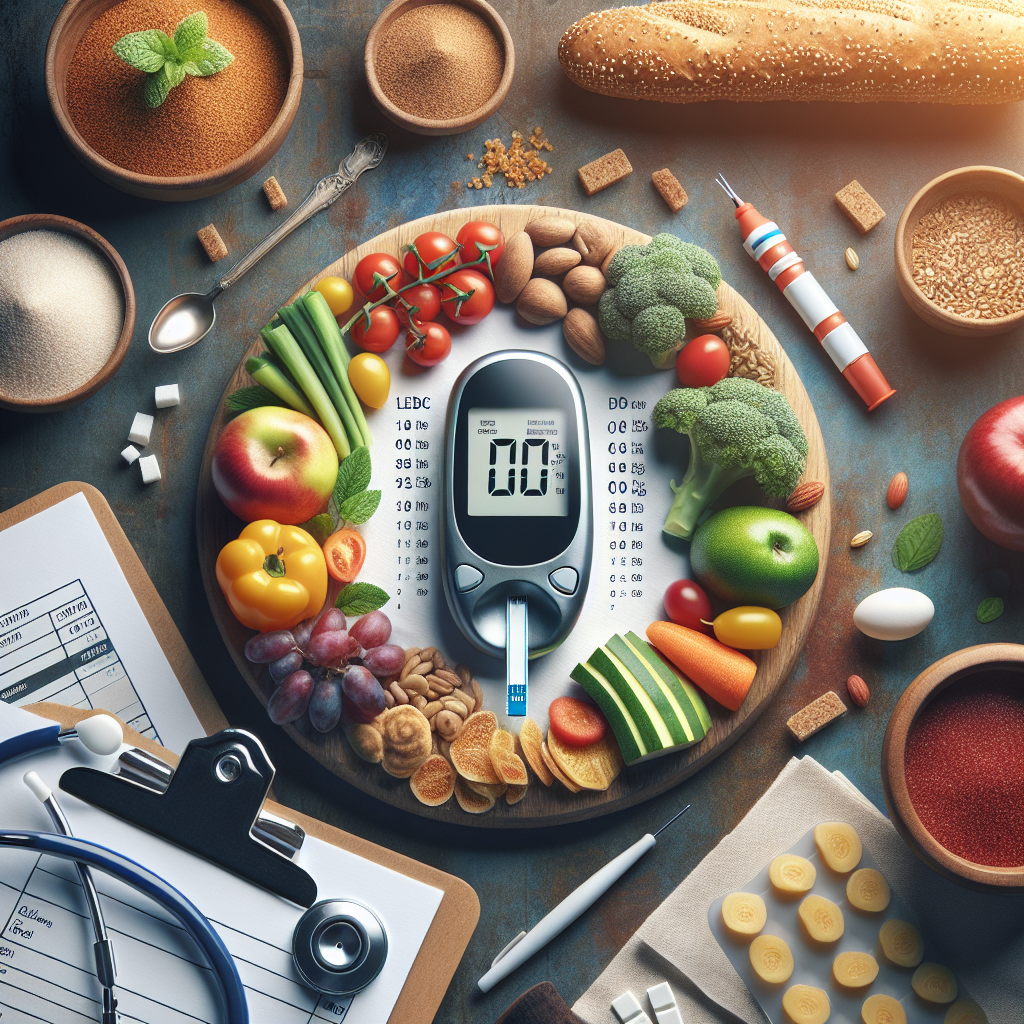Understanding the relationship between blood sugar control and effective weight loss is crucial for anyone looking to shed unwanted pounds and improve overall health. Blood sugar, or glucose, is the body’s primary source of energy and is regulated by insulin, a hormone produced by the pancreas. When blood sugar levels are balanced, it can lead to increased energy, reduced cravings, and more efficient fat burning.
For many people, managing blood sugar levels can be challenging due to factors such as diet, lifestyle, and even genetic predispositions. However, with the right strategies, it is possible to maintain stable blood sugar levels and, as a result, support weight loss efforts.
In this article, we will explore the various ways you can control your blood sugar to aid in weight loss. From dietary adjustments to medication options like semaglutide and tirzepatide, you will find actionable tips to help you achieve your weight loss goals.
Get Started Today On Your Weight Loss Journey and discover how controlling your blood sugar can make a significant difference in your health and weight loss success.
Understanding the Link Between Blood Sugar and Weight Gain

To grasp how blood sugar affects weight gain, it’s essential to understand the body’s response to food intake. When you consume carbohydrates, they are broken down into glucose, which enters the bloodstream. In response, the pancreas releases insulin to help cells absorb glucose for energy. However, if you consume high amounts of refined sugars and simple carbs, it can spike your blood sugar levels.
Frequent blood sugar spikes lead to increased insulin production. Over time, this can cause insulin resistance, where cells become less responsive to insulin. As a result, more insulin is needed to manage blood sugar levels, leading to higher insulin levels in the bloodstream. Elevated insulin levels can promote fat storage, particularly around the abdomen, contributing to weight gain.
Moreover, insulin resistance can lead to persistent hunger and cravings, making it harder to stick to a healthy diet. This cycle of high blood sugar, increased insulin, and subsequent fat storage can set the stage for weight gain and other metabolic issues.
By understanding this link, you can take proactive steps to manage your blood sugar levels. This includes choosing complex carbohydrates, incorporating protein and fiber into your meals, and avoiding foods high in refined sugars. These changes can help stabilize blood sugar levels, reduce insulin spikes, and ultimately support your weight loss efforts.
Dietary Tips for Maintaining Stable Blood Sugar Levels

Maintaining stable blood sugar levels is crucial for effective weight loss and overall health. Here are some dietary tips to help you achieve this:
1. Choose Complex Carbohydrates: Unlike simple carbs, complex carbohydrates are digested slowly, leading to gradual increases in blood sugar levels. Opt for whole grains, legumes, and vegetables instead of refined grains and sugary foods.
2. Prioritize Protein: Including protein in your meals can help stabilize blood sugar levels by slowing down the absorption of glucose. Good sources of protein include lean meats, fish, eggs, dairy products, and plant-based options like beans, lentils, and tofu.
3. Incorporate Healthy Fats: Healthy fats can also slow down the absorption of glucose and help keep you feeling full longer. Include sources of unsaturated fats like avocados, nuts, seeds, and olive oil in your diet.
4. Eat Regularly: Skipping meals can lead to blood sugar drops and subsequent overeating. Aim to eat small, balanced meals every 3-4 hours to keep your blood sugar levels stable throughout the day.
5. Watch Your Portions: Even healthy foods can lead to blood sugar spikes if consumed in large quantities. Be mindful of portion sizes, especially with carbohydrate-rich foods.
6. Limit Sugary Beverages: Sugary drinks like soda, fruit juices, and energy drinks can cause rapid blood sugar spikes. Opt for water, herbal teas, or other low-calorie beverages instead.
Implementing these dietary tips can help you maintain stable blood sugar levels, reduce cravings, and support your weight loss journey.
The Role of Medications in Blood Sugar Management

Medications play a pivotal role in managing blood sugar levels, especially for individuals struggling with diabetes or insulin resistance. Understanding how these medications work can help you make informed decisions about your health.
1. Insulin: For those with type 1 diabetes or advanced type 2 diabetes, insulin therapy is essential. Insulin helps to regulate blood sugar by enabling the body’s cells to absorb glucose efficiently. It comes in various forms, including rapid-acting, long-acting, and intermediate-acting, tailored to meet individual needs.
2. Metformin: This is often the first-line medication prescribed for type 2 diabetes. Metformin works by reducing the amount of glucose produced by the liver and improving the body’s sensitivity to insulin. It is highly effective in lowering blood sugar levels and has a favorable safety profile.
3. Semaglutide and Tirzepatide: These newer medications, known as GLP-1 receptor agonists, mimic the action of an incretin hormone that stimulates insulin secretion in response to meals. They not only help in lowering blood sugar levels but also aid in weight loss by reducing appetite and slowing gastric emptying. Our doctor-prescribed medications at New England Weight Loss utilize semaglutide and tirzepatide to help patients manage their blood sugar and reduce unwanted fat.
4. SGLT2 Inhibitors: These medications work by preventing the kidneys from reabsorbing glucose back into the blood, thereby promoting its excretion through urine. This class of drugs can also aid in weight loss and reduce the risk of cardiovascular events.
5. DPP-4 Inhibitors: These medications help increase insulin production and decrease sugar production in the liver by inhibiting the enzyme DPP-4. They are often used in combination with other diabetes medications for better blood sugar control.
Medications, when used appropriately, can significantly improve blood sugar management and support weight loss efforts. Always consult with your healthcare provider to determine the best treatment plan for your specific needs.
Lifestyle Changes to Support Blood Sugar Control

In addition to medications, certain lifestyle changes are crucial for effective blood sugar control. These changes can help stabilize blood sugar levels, improve overall health, and complement other treatment strategies.
1. Balanced Diet: A well-balanced diet is foundational for managing blood sugar. Focus on consuming whole grains, lean proteins, healthy fats, and plenty of fruits and vegetables. Avoid refined sugars and simple carbohydrates, which can cause rapid spikes in blood sugar levels. Incorporating foods with a low glycemic index can help in maintaining stable blood sugar levels throughout the day.
2. Regular Physical Activity: Engaging in regular physical activity helps improve insulin sensitivity and promotes glucose uptake by the muscles. Aim for at least 150 minutes of moderate-intensity exercise, such as brisk walking, swimming, or cycling, per week. Resistance training is also beneficial as it helps build muscle mass, which further aids in blood sugar regulation.
3. Stress Management: Chronic stress can negatively impact blood sugar levels by triggering the release of stress hormones like cortisol, which can increase blood sugar. Practicing stress-reducing techniques like meditation, deep breathing exercises, yoga, or spending time in nature can help manage stress effectively.
4. Adequate Sleep: Poor sleep quality or insufficient sleep can affect insulin sensitivity and increase blood sugar levels. Aim for 7-9 hours of quality sleep each night. Establishing a regular sleep schedule and creating a calming bedtime routine can significantly improve sleep quality.
5. Hydration: Staying adequately hydrated helps the kidneys flush out excess sugar through urine. Drinking water regularly throughout the day ensures that your body functions optimally and keeps blood sugar levels in check.
6. Avoiding Smoking and Excessive Alcohol: Both smoking and excessive alcohol consumption can interfere with blood sugar control. Quitting smoking and limiting alcohol intake can have a positive impact on your overall health and help maintain stable blood sugar levels.
Implementing these lifestyle changes can greatly enhance your ability to manage blood sugar levels effectively. They not only support blood sugar control but also promote overall well-being and long-term health.
Monitoring and Adjusting Your Blood Sugar Plan
To achieve effective blood sugar control for weight loss, it is crucial to continuously monitor and adjust your blood sugar management plan. Regularly tracking your blood sugar levels allows you to make informed decisions and fine-tune your approach for optimal results.
1. Regular Monitoring: Consistently checking your blood sugar levels is essential. Use a glucometer or a continuous glucose monitor (CGM) to track your levels at various times of the day, especially before and after meals, and before bed. This data will help you understand how different foods, activities, and medications affect your blood sugar.
2. Keeping a Log: Maintain a detailed log of your blood sugar readings, dietary intake, physical activity, medication dosages, and any symptoms you experience. This comprehensive log will provide valuable insights into patterns and trends, making it easier to identify areas that need adjustment.
3. Consulting Healthcare Professionals: Regular consultations with your healthcare provider are vital. They can analyze your blood sugar data, assess your progress, and recommend necessary adjustments to your medication, diet, or lifestyle. Their expert guidance ensures that your blood sugar management plan remains effective and tailored to your needs.
4. Being Proactive: Don’t wait for problems to arise. Stay proactive by making gradual adjustments based on your monitoring data. If you notice consistently high or low blood sugar levels, act promptly by tweaking your diet, increasing physical activity, or discussing medication changes with your healthcare provider.
5. Technology Utilization: Leverage technology to aid in monitoring and adjusting your plan. Many apps and devices can sync with your glucometer or CGM, providing real-time data and trend analysis. These tools can help you stay on track and make more accurate adjustments.
Effective monitoring and timely adjustments are essential components of successful blood sugar management. By staying vigilant and proactive, you can achieve better blood sugar control, facilitating weight loss and improving overall health.
Get Started Today On Your Weight Loss Journey by visiting New England Weight Loss. Our expert team is here to support you every step of the way.







